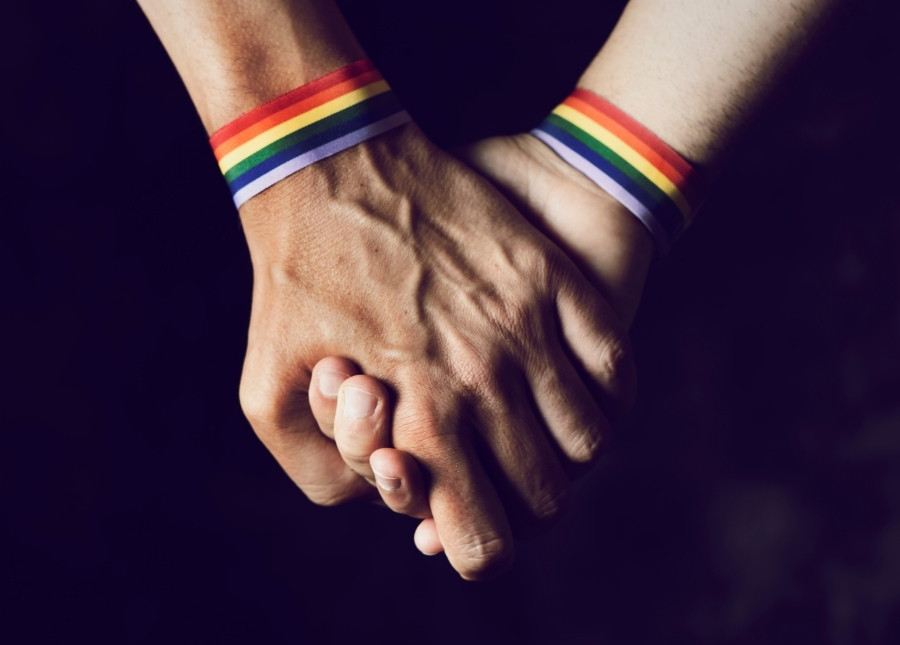
Are you struggling with internal and external conflicts around living authentically and being yourself?
Is your sexual/gender expression creating relational strains with your family, friends, or colleagues?
Are you wondering how to best support a loved one in the LGBTQIA+ community?
You are not alone. Sunstone Counseling provides compassionate and supportive mental health counseling for individuals in the LGBTQIA+ community and their allies.
Guiding You on Your Journey to a Fully Expressed Life
Sunstone offers LGBTQIA+-affirming counseling, providing a safe and validating space for you to express yourself without judgment.
Therapy under an LGBTQIA+-affirming lens focuses on the intersection of sexual/gender identity and mental well-being to determine whether your behaviors and who you are as a person align with who you want to be.
Our team of LGBTQIA+-affirming therapists – whether they belong to or are strong allies of the community – are committed to helping you explore your identity and orientation, live authentically, and express yourself fully to the world around you.
Get the support you deserve and contact us to find the right counselor to guide you or your loved one on a journey to living a fully expressed life.
Our experienced team provides support for the LGBTQIA+ community in areas such as:
- Exploring sexuality and/or gender
- Gender identity and expression
- Interpersonal/relationship dynamics
- Trauma (harassment, physical/sexual abuse)
- Anxiety and depression
- Suicidal ideation and self-harm
- The coming out process
- Gender dysphoria
- Sex and intimacy
- Transitioning
- Same-sex parenting
- Parenting of LGBTQIA+ youth
Mental Health and Suicide Risk Among LGBTQIA+ Youth
Despite growing cultural acceptance of diverse sexual orientations and gender identifications, marginalization of the LGBTQIA+ community persists. Building and maintaining an authentic sense of self in the face of social pressures can lead to heightened levels of depression, anxiety, and other mental health challenges, particularly among impressionable youth.
According to The Trevor Project’s 2022 National Survey on LGBTQIA+ Youth Mental Health, nearly half of LGBTQIA+ youth seriously considered suicide in the previous year. Anxiety and depression were also common, with 73 percent of LGBTQIA+ youth experiencing symptoms of anxiety and 58 percent experiencing symptoms of depression.
If you or a loved one is experiencing anxiety, depression, or thoughts of suicide, please reach out to us for support. Our team includes counselors specialized in working with LQBTQIA+ youth of all ages: ages 7-10 | ages 11-13 | ages 14-17.

If you or someone you know is having thoughts of suicide, immediate help is available.
Call or text 988 or chat 988lifeline.org to reach the 988 Suicide & Crisis Lifeline.
Shining a Light on LGBTQIA+ Mental Health
June is Pride month, an opportunity to acknowledge and celebrate the lives and contributions of the lesbian, gay, bisexual, transgender, queer/questioning, intersex, and asexual (LGBTQIA+) community. While the dancing and colorful festivities are a wonderful way to celebrate, it’s also an opportunity to shine a light on the unique challenges members of this community face, particularly when it comes to their mental health and well-being.
Supporting Your Transgender or Nonbinary Child
For parents or caregivers of a transgender or nonbinary child, it can be a confusing and overwhelming journey. But loving and accepting children for who they are plays a vital role in affirming their identity. After all, transgender and nonbinary children should feel they are in a safe environment where they can flourish as their authentic self. They are entitled to be respected, supported, and loved, especially at home.
How to Support Yourself When Coming Out
Living an authentic and fully expressed life is one of the best ways to feel happy, healthy, and fulfilled. If you are contemplating coming out to the people in your life, know that you’re making a courageous and healthy choice for yourself. But coming out can be intimidating and downright terrifying for some. How will people react? Will your friends and family accept you? Will you face consequences at work or your place of worship? It’s perfectly normal to have these fears and worries, but there are tangible steps you can take to make your landing softer.
Using Your Pronouns Helps Create a Safe Space for Others
“Hi, my name is Jami and I use she/her/hers pronouns.” Not going to lie — it was incredibly awkward the first time I said this out loud. Honestly, as a cisgender (a person whose sense of personal identity and gender correspond with their birth sex) female, it felt unnecessary for me to state my pronouns. But, you know what? Stating my pronouns isn’t about my awkward feelings; it is about creating a safer and more comfortable space for everyone in the room. Basically, it helps normalize introductions that include pronouns.




